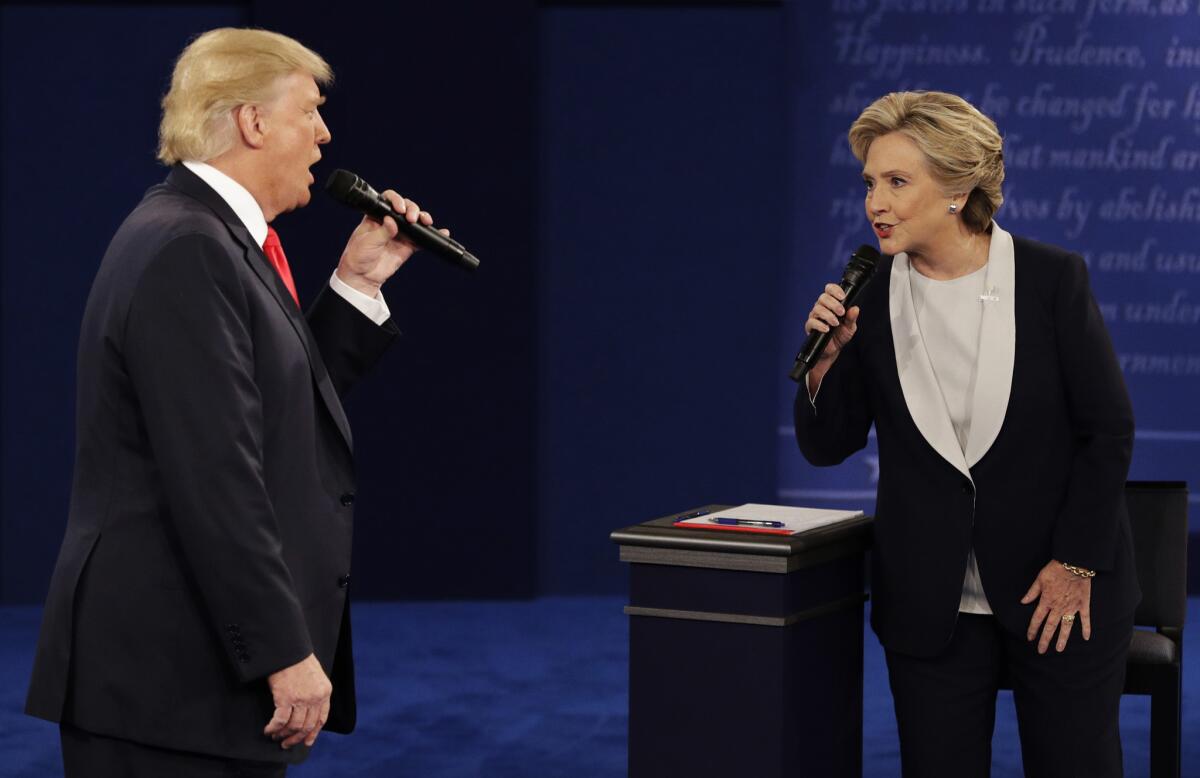Op-Ed: Identity politics did in Clinton, but not the way you think

As someone who’s been railing about the seductions and limitations of identity politics for, oh, probably the last decade, I was glad to see the topic slide into the foreground a few weeks ago. This was largely the result of a provocative and polarizing opinion article by Columbia humanities professor Mark Lilla, who argued that if liberals want to win national elections, they need to implement a strategy that leads with a unifying message — probably an economic one, since concern about money is the grand unifier — rather than try furiously to check an ever increasing collection of identity boxes.
That’s not to say that issues around racial justice and LGBT rights (to name two identity categories) aren’t integral to the fabric of social progress but, rather, that meaningful change is less likely to happen through a single, sweeping victory than in small, sometimes agonizingly slow increments. In other words, you can win the war only if you prioritize.
At least that was my reading. In the weeks since, the consensus among progressive types has been that such an outlook is the province of clueless and privileged cisgendered white people (men, apparently, but me too) who are all too happy to throw marginalized groups under the bus by suggesting that their issues are too trivial to bother with. After all, such progressives say, economic well-being is intrinsically tied to opportunity, which is intrinsically tied not only to the class we’re born into but the bodies we are born with.
Trump dealt out the victim card to his supporters at every possible opportunity, and they were all too happy to show theirs around like a brand new fake ID.
That last part is absolutely true, but what defenders of identity politics don’t seem to understand is that it’s possible to support policies that improve the lives of marginalized groups and at the same time to be wary of viewing the world chiefly through the lens of your own oppression. Barack Obama, in his 2008 campaign as well as his presidency, was particularly skilled at threading that needle.
To be clear, I don’t think Hillary Clinton lost the election because she played the identity politics card. There was no single Clinton catastrophe; so many things went wrong in just the right way that political theorists will spend the next several decades trying to piece together the wreckage.
Moreover, while Clinton may have relied too heavily on celebrity supporters and the rather hollow iconography of pop-culture feminism, she was hardly running an identity politics campaign. Pantsuit brigades and social-media-driven “you go girl” optics aside, she actually spent a lot more time talking about substantive policy than about LGBT issues or Black Lives Matter. It was just difficult to hear her when the media were busy covering her opponent as he screamed about putting her in jail.
But that’s not to say identity politics didn’t cost the Democrats the election. They did, big time. Because the GOP used them more shrewdly and shamelessly than the Democrats ever have.
Donald Trump dealt out the victim card to his supporters at every possible opportunity, and they were all too happy to show theirs around like a brand new fake ID. Suddenly, the white majority became a persecuted minority, determined to see itself as “othered” (to borrow from liberal academic jargon) by an elite that looks down on their guns and their churchgoing and their confusion over the rapidly changing parameters and vocabulary of the transgender movement, among other things. (And let’s just say it: A lot of liberals find that vocabulary just as exasperating as conservatives.) Lo and behold, the Trumpkins beat the liberals at their own game, with white nationalism emerging as the most noxious identity of all.
I’ll be pilloried for saying transgender vocabulary can be vexing, “called out” as intolerant the same way I was called out for agreeing with an article questioning the usefulness of identity politics. Those who issue such calls will derive some momentary satisfaction from attacking me, but they’ll be wasting their energies on someone who is not remotely their enemy.
And that brings me back to my original point, which is that identity politics, whether expressed by scolding someone on Twitter or by electing a grifting demagogue to the presidency, generally do less to enrich the conversation than limit and obscure it. If you don’t believe me, check back with Trump’s victim voters in a few years and see how things are working out. Chances are, they’ll be wishing they’d saved that card for when they really needed it.
Follow the Opinion section on Twitter @latimesopinion and Facebook
ALSO
Alabama judges shouldn’t be able to override juries and issue death sentences
What message was the U.S. government trying to send when it detained me at the border?
Can Trump cut off funds for sanctuary cities? The Constitution says yes.
More to Read
A cure for the common opinion
Get thought-provoking perspectives with our weekly newsletter.
You may occasionally receive promotional content from the Los Angeles Times.











